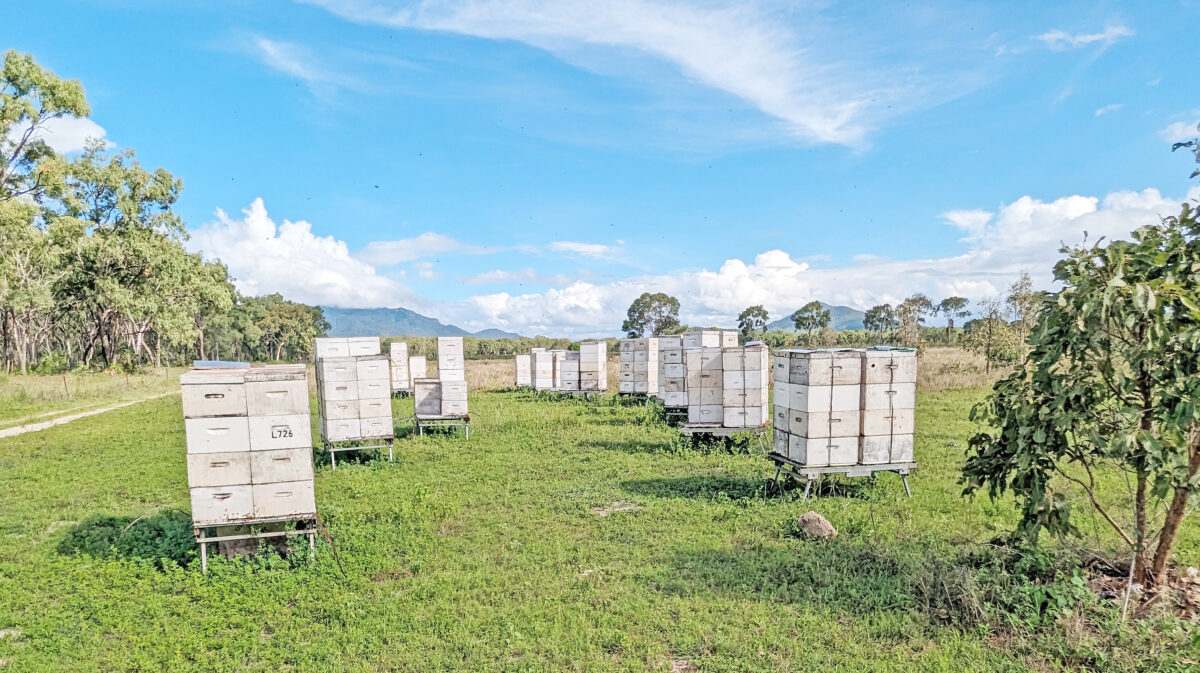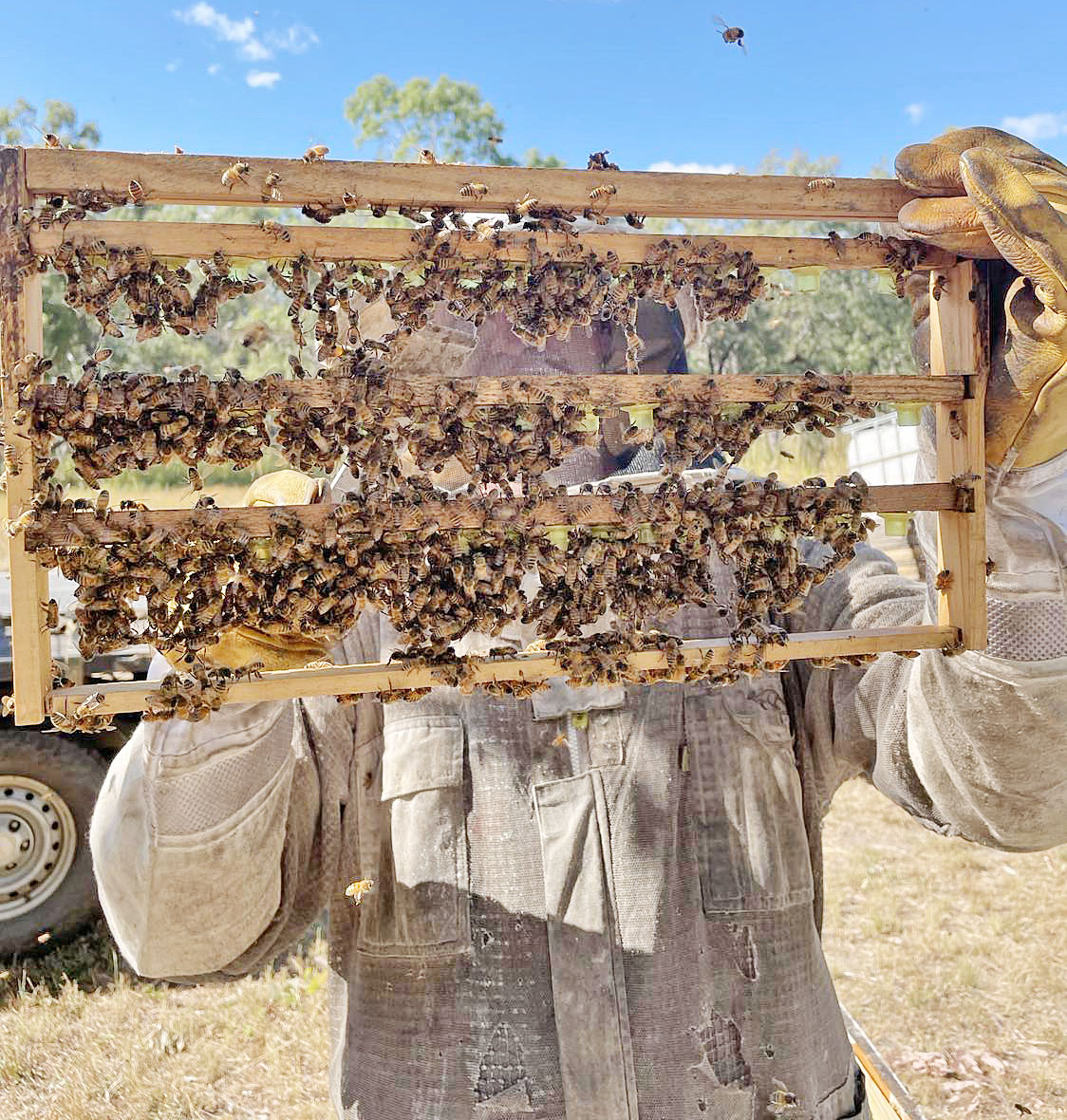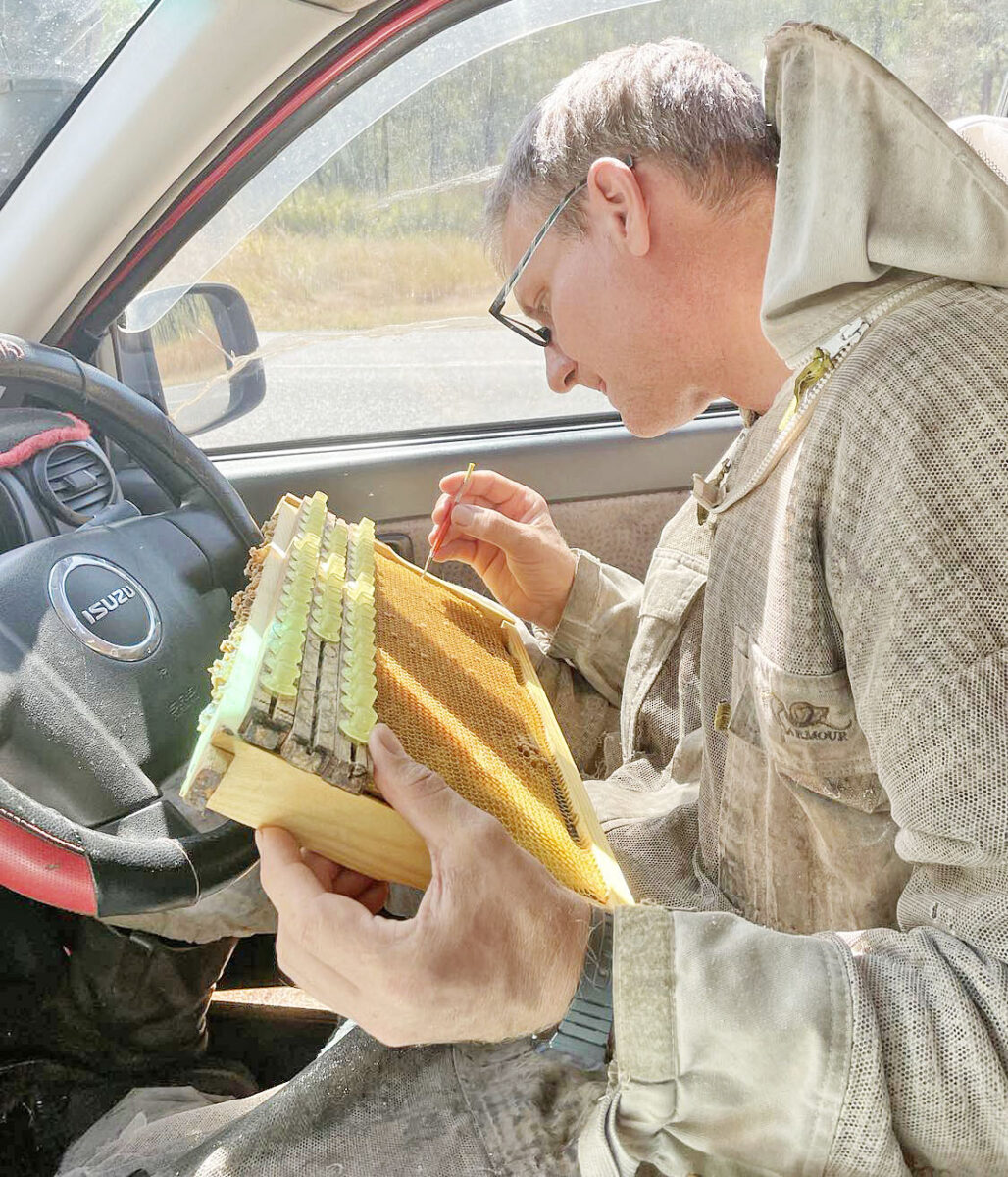
Jack Laughton’s 800 hives are dotted alongside the Mulligan Highway and on private properties across the Far North.
A TREECHANGE from the mining sector to professional beekeeping for Bloomfield’s Jack Laughton has proven a good choice, with a 30-ton honey haul this year.
Now based in Diwan, Mr Laughton grew up in Bloomfield and spent a decade working in environmental management in mining before deciding to try his hand at beekeeping.
“I started with 60 hives, and now I’ve got close to 800,” he said.
“I’m 95 per cent self-taught but I have a couple of large beekeepers as mentors, they have about 6000 hives in their family business.”
Many locals will have seen his white hives on the Mulligan Highway, dotted along the roadside between Cooktown and Mareeba.
“It’s a great area, there’s a variety of trees along the road and it can be challenging to find private sites for my bees,” he said.
“I’m really grateful for the generosity of people around me who have allowed me onto their land.”

Jack Laughton loves the science behind beekeeping, which has helped him grow his business to 800 hives.
Sweet success doesn’t come easy, with Mr Laughton travelling more than 50,000km every year to manage his bees and their hives, which are spread across private property and the Mulligan Highway road corridor.
“I try to inspect my hives on a three-weekly basis,” he said.
“I’m always driving. At some stage, beekeeping becomes more about the logistics!”
There is more to beekeeping than just finding space for the hives, with Mr Laughton following painstakingly exact breeding and swarm management plans.
“That’s what made me so interested in bees, there’s lots of science involved in it in the genetics and breeding,” he said.
“I breed my own bees, they’re bred here for these conditions.
“I go through my hives and find maybe 10 to 20 out of the 800 that are exceptionally good and have the characteristics I want, disease resistance, a strong population, able to handle the weather and small hive beetles and are top honey producers.
“Then I take one-day old larvae, about 1.5mm long and I graft those and make them into a queen and put them into a strong queen-less hive, and she will go and mate with other bees outside her gene pool and come back and you then have a laying queen.”

Jack Laughton travels 50,000km a year looking after his bees across the Far North.
Mr Laughton’s Bee Tropical business is one of five commercial bee operations in the Far North area producing honey and also providing commercial pollination services.
“I do pollination work on farms in Lakeland and the Atherton tablelands,” he said.
“I bring in the bees, drop them off and when the flowering is finished I come to pick them up and take them away.
“I get a real sense of achievement when I see B-doubles of produce being sent out of the region, knowing that my bees helped produce that.”
Mr Laughton said with honey producers across the country doing well, and a glut of quality Australian honey on the market, it was important for people to buy Australian.
“It’s important when people are at the shop they try to buy local honey, really look at the labels and use the Australian labelling system to make sure it’s 100 per cent Australian honey,” he said.


